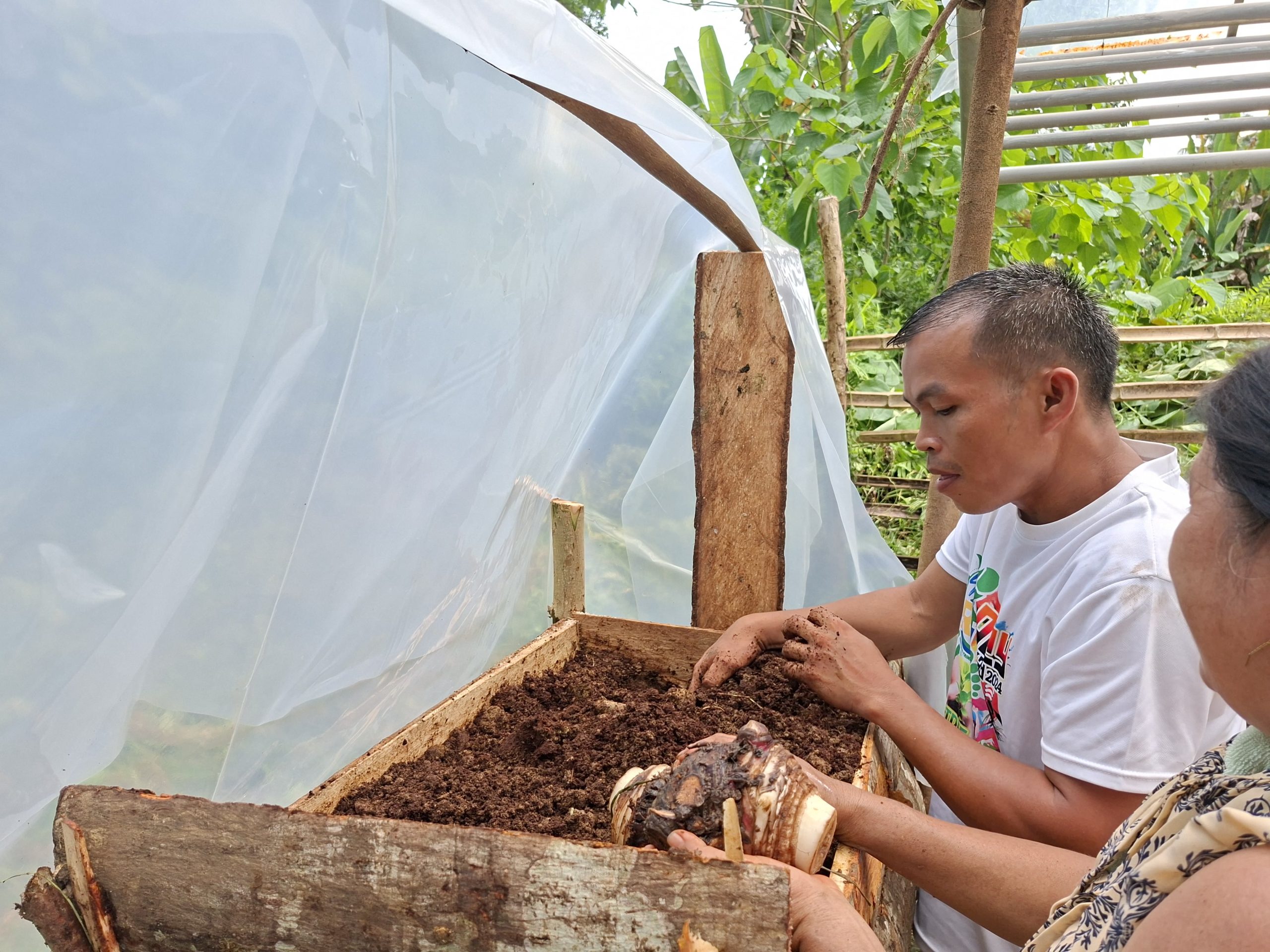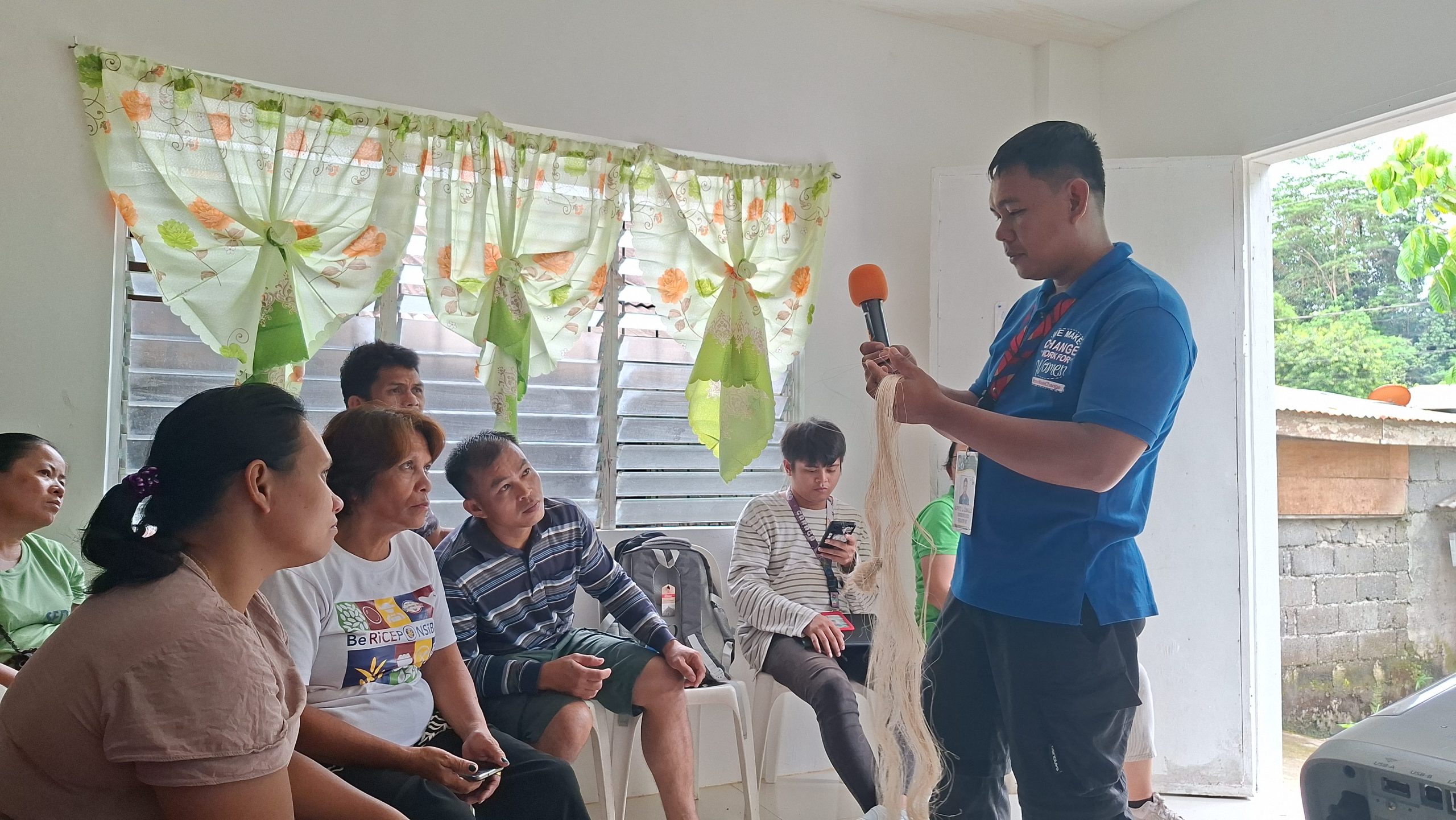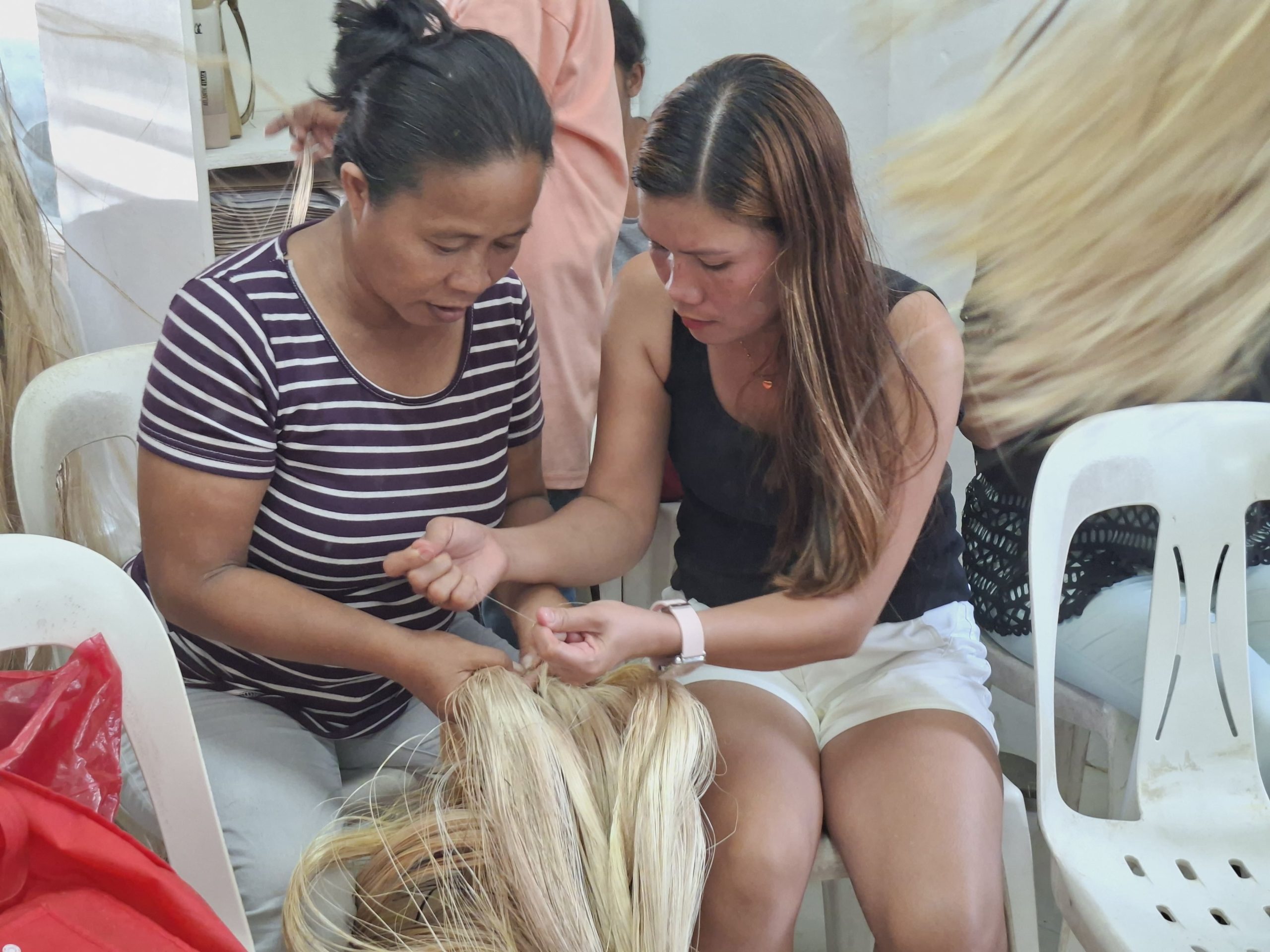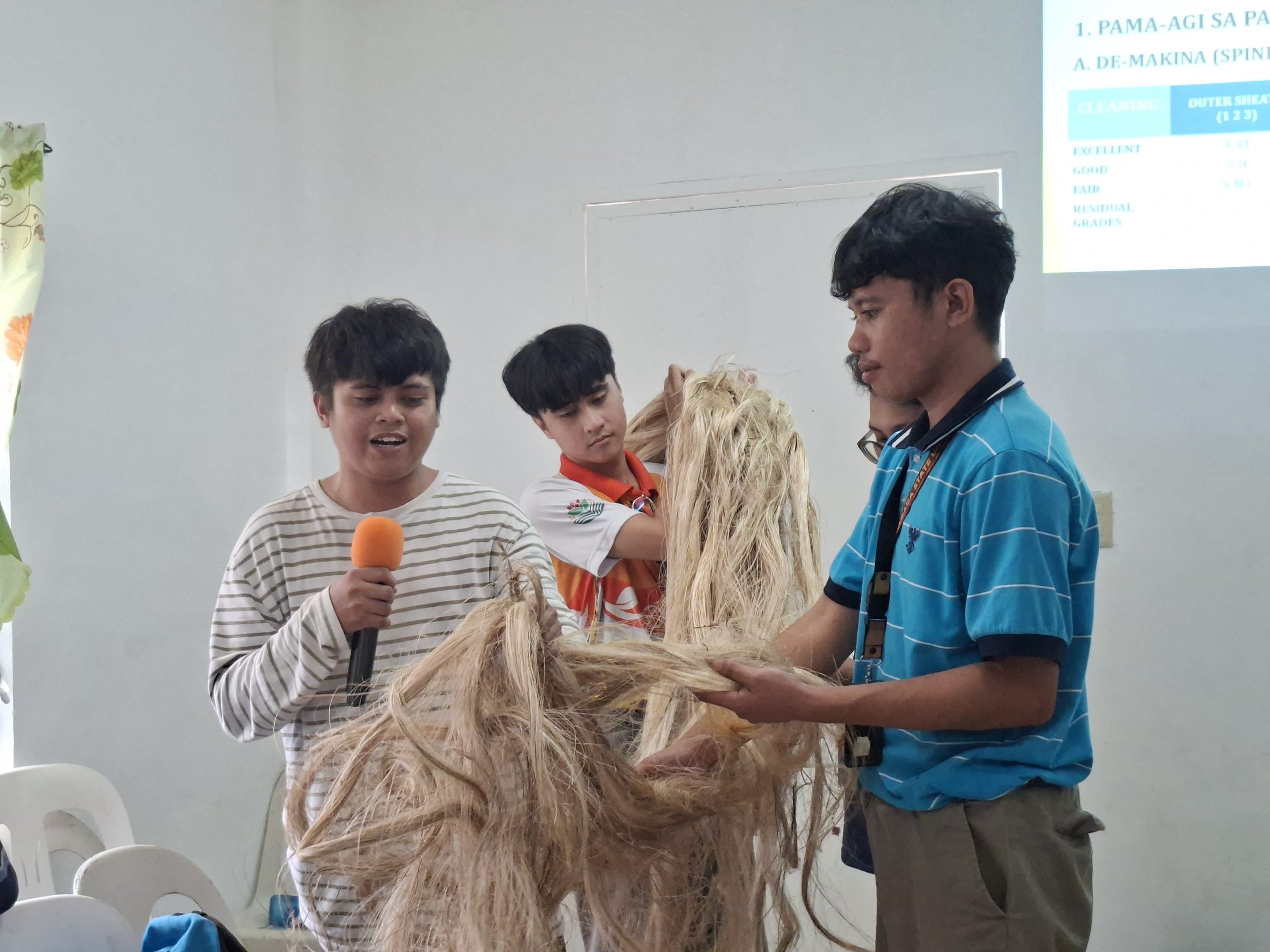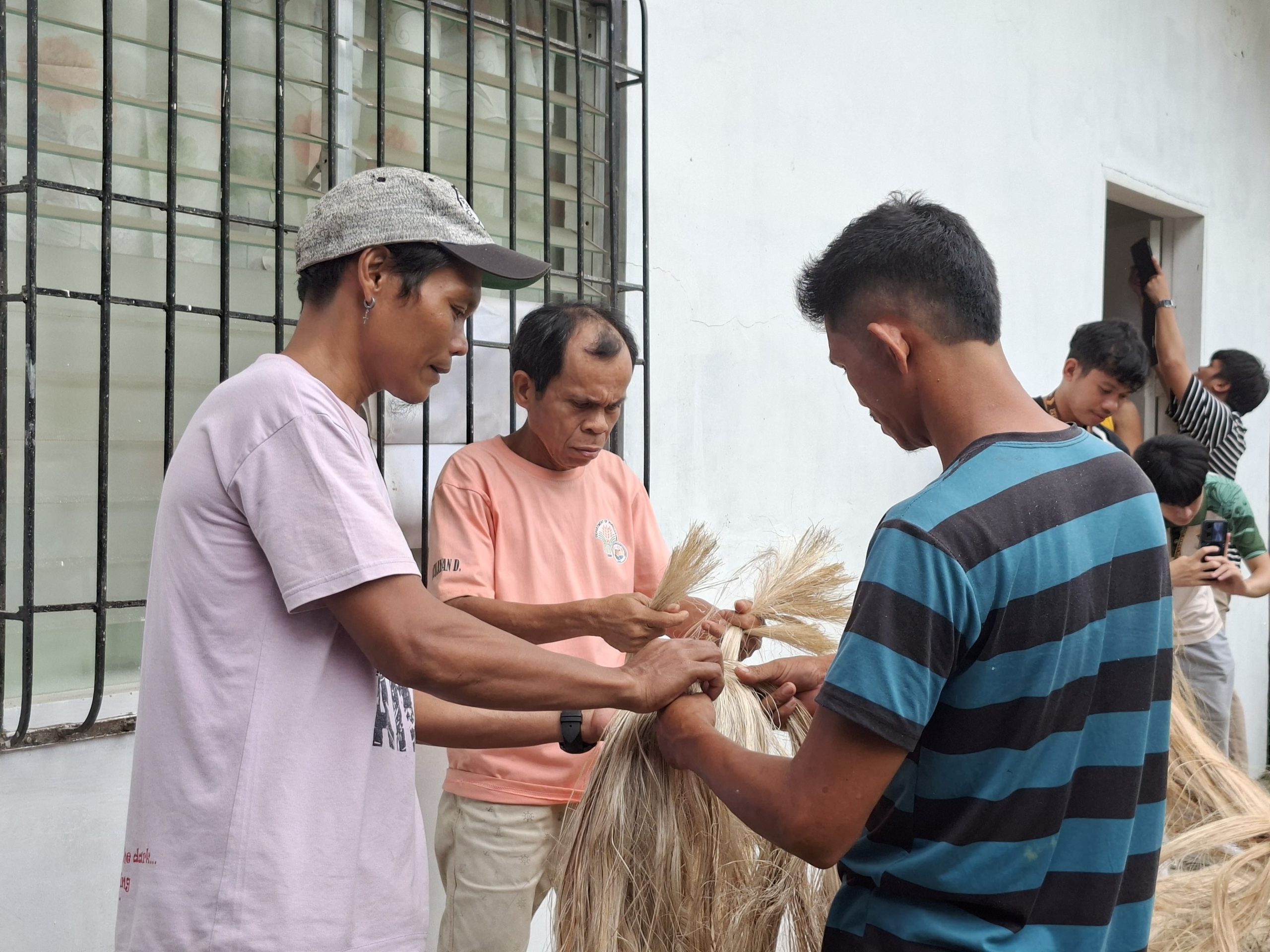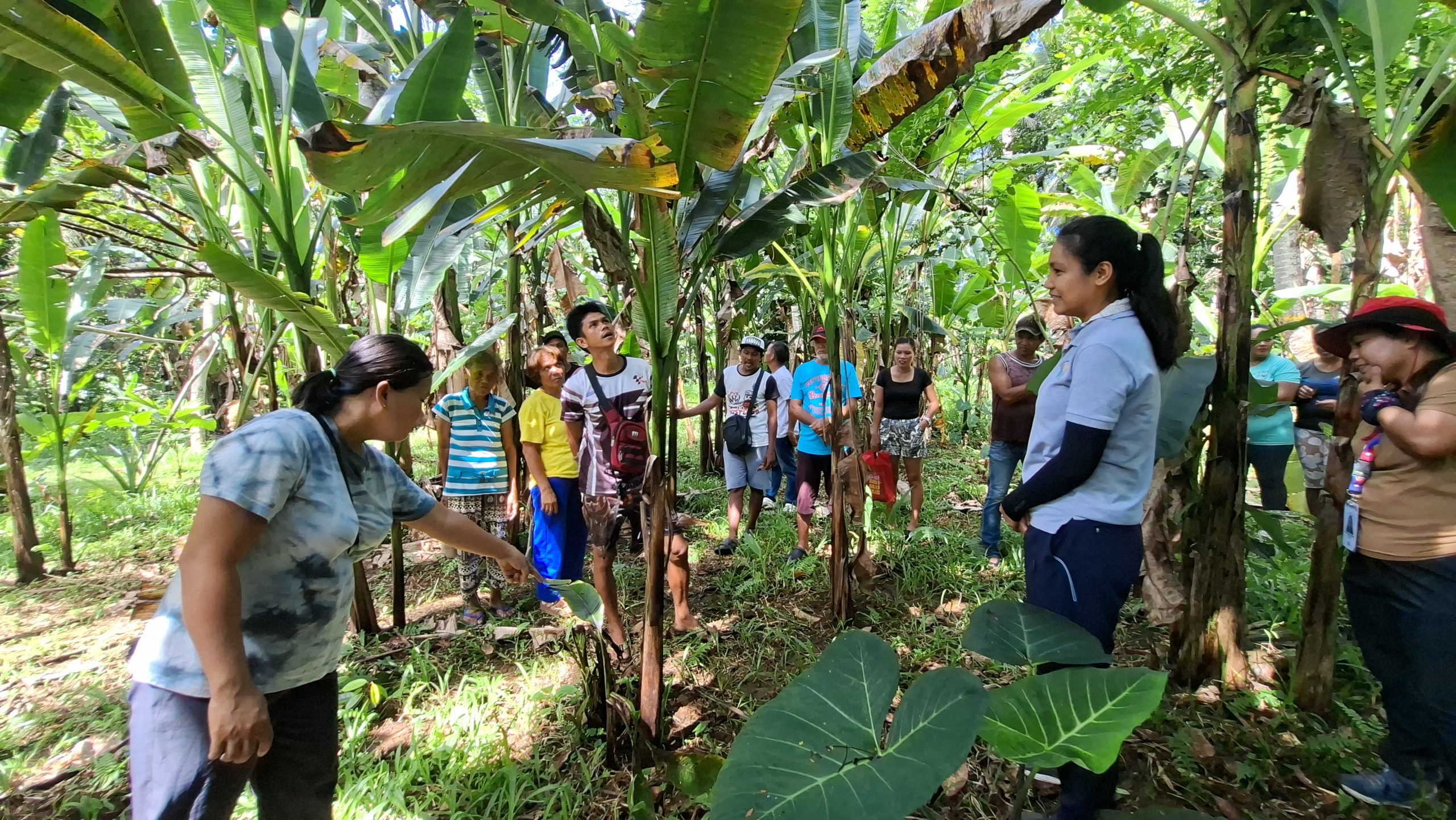Department of Agriculture – Special Area for Agricultural Development (SAAD) Program conducted a week-long training on abaca macro propagation, and fiber consolidation and marketing in partnership with Philippine Fiber Industry Development Authority (PhilFIDA) Caraga for the benefit of the abaca farmers of San Antonio Farmers Organization (SAFO), held last June 24-27, 2025 in Brgy. San Antonio, Remedios T. Romualdez (RTR), Agusan del Norte.
The training was designed by their Area Coordinator Jesza N. Taala to reinforce the knowledge that were introduced during the abaca benchmarking activity in San Luis, Agusan del Sur and Santiago, Agusan del Norte to all the farmer members of SAFO to strengthen everyone’s knowledge on abaca reproduction for project sustainability and abaca processing and selling for economic growth.
Provincial Fiber Officer for Agusan del Norte, Phoebe Grace Colonia kicked off the activity by discussing the importance and the long-term advantages of learning the proper methods of abaca macro propagation.
“This training teaches you on how to select a healthy mother plant for propagation to produce uniform, high-yielding, and disease-free planting materials. These things are necessary to ensure the sustained viability and productivity of your abaca plantations.”
Colonia further explained that it is cost-efficient for the group to produce their own planting materials when they become independent in the future as they reduce their dependency to expensive outside suppliers and sometimes to low-quality and unverified seedling sources.
To visualize the difference between a good abaca sucker and corm to something that is not, Colonia brought sample planting materials of properly and poorly sourced abaca seedlings to clearly discuss the dos and don’ts in extracting the reproductive parts of a mature plant and to distinguish its male and female part.
Fiber Development Officer II Psymie Ceballos headed the practical demonstration on abaca pest and disease identification, where the farmers were taught to distinguish the manifestations of seedling infection and infestation. They also learned its common sources to integrate science-based management and prevention.
During the training on abaca fiber consolidation and marketing, Fiber Development Officer II Alfritz Ceballos highlighted the impact of the abaca fiber industry on the region’s economic growth.
“To produce high quality fibers, we must understand the significance of fiber characteristics, proper grading, and classification systems in our quality assurance standards as abaca farmers to ensure high pricing and marketability,” he noted.
Demonstrating the grading criteria for abaca fibers, Ceballos emphasized the indications of a fiber’s color, length, tensile strength and how those factors theoretically affect value, pricing, and marketability.
During the training, the farmers were tasked to a return demonstration activity where they identified and classified different bundles of abaca fibers and presented their evaluation and assessment of it. The exercise was initiated to gauge the knowledge acquired by the farmers in accurately and constructively examining different abaca bundles as basic knowledge in consolidation is crucial as they venture into fiber buying and selling.
As the farmers of SAFO await the full maturity of their abaca plants to be harvested in the latter part of the year, SAAD will continue to provide technical and marketing support to the FA in partnership with PhilFIDA and its Local Government Unit (LGU) to ensure the success of their abaca fiber processing to level up their livelihood into a Community-Based Enterprise.
